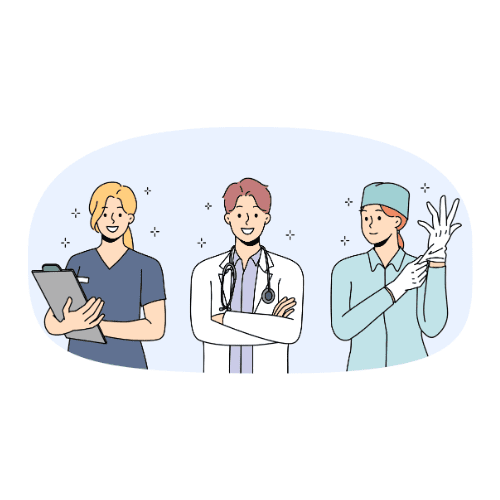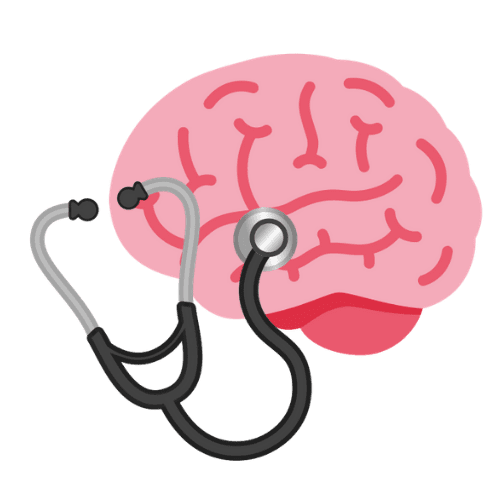So just how many doctors might have ADHD?
Let’s start with a similar question – how many doctors are neurodivergent, and why is it hard to find out?
All of us fall within the spectrum of neurodiversity, a model which categorises human cognitive variation in the context of biodiversity, instead of a threshold at which normal becomes pathological. ADHD is one condition commonly associated with neurodivergence, alongside autism spectrum disorder (ASD, or autism), dyslexia and some mental illnesses.
There’s unfortunately no reliable data on the overall prevalence of neurodivergence among medical professionals, so it’s difficult to quantify how significant neurodiversity may be in the medical profession. If we use autism as an example, one survey found that 1% of general practitioner respondents identified as autistic. Using data from the general population, the Royal College of Psychiatrists (RCPsych) estimate that at least 3000 doctors practising in the UK, which is just under 1% of all UK doctors, may be autistic.
In contrast, 3-4% of adults are estimated to have ADHD. However, this number is likely to be a vast underestimate, and especially so in medical professionals.

Are we accurately identifying ADHD?
Several factors are likely to affect the true prevalence of neurodivergence in doctors, the most prominent being identification. Neurodevelopmental conditions affect individuals of all ages, but presenting characteristics vary between different stages in the lifespan. Although most diagnoses occur in childhood, many still slip through the net until adulthood, when coping strategies become insufficient in meeting the demands of adult life. Growing public awareness of neurodevelopmental conditions in adults, or a diagnosis in a family member with similar traits, are the most common precipitating factors to a late diagnosis of underlying autism or ADHD.
Women and ethnic minorities are particularly affected by missed diagnoses. Neurodivergence may also be under-identified in doctors because the signs aren’t recognised for what they are.Medical school admissions select candidates who are intelligent, conscientious high-performers – strengths which may inadvertently mask their difficulties. 7
Some argue that common neurodivergent traits can be perceived as ideal professional qualities, and therefore positively selected for. ADHD symptoms may be missed, seen just as the traits of a good doctor.
A secret superpower?
Although ADHD is often associated with poor outcomes in academic, vocational and social domains, positive aspects described in research include high levels of energy and drive, the ability to hyper-focus, and greater empathy. These positive traits may help to explain why ‘disorders’ like ADHD are still genetically pervasive – and might be more common in doctors than we think.
For example, impulsivity, and the ability to make quick decisions, is often an asset for doctors in emergency medicine. On a ward shift, doctors will constantly move between seeing different patients and performing different tasks – this variety is really appealing to an attention-deficit brain. When you have ADHD, the brain’s decisions are driven by interest, and it is much more productive when it’s engaged in something enjoyable or new. This curiosity-driven information seeking is known as ‘deprivation curiosity’, and is associated with positive effects on learning, and may be positively selected for in medical school applicants. Later in a medical career, it can aid clinical reasoning and diagnosis.
Stigma and self-disclosure.
Another reason why we can’t be sure how many doctors have ADHD is because not everyone is comfortable disclosing their diagnosis. In a 2020 British Medical Association survey of doctors with disabilities, only 36% of respondents felt comfortable disclosing their disability at work, and 77% were fearful of discrimination if they did disclose.
Stigma and misconceptions surrounding neurodivergence are disappointingly still widespread in the medical profession. In a Reddit community for junior doctors, one comment on a post about reasonable adjustments for ADHD reads – “an amended lunch break because you have ADHD… what a f*cking world we have created”. Another doctor comments “the sooner this obsession with being diagnosed with neurodiversity ends, the better”. It is grossly troubling that these words come from medical professionals. I can see why many doctors and medical students with ADHD don’t feel sharing their diagnosis, and I will honestly say I similarly regret my own disclosure at times.
What’s next?
In summary, we can’t be sure how many doctors with ADHD are out there. However we can be sure of one thing – they do exist. Although it isn’t yet fully realised, neurodivergent doctors are an asset to the medical profession. They can offer many strengths, including attention to detail, high energy and empathy. Most importantly, they can have a unique, informed sense of empathy and ability to advocate for the benefit of neurodivergent patients.
To encourage disclosure, and know just how many ADHD brains are in the medical profession, we need to promote a culture of acceptance of our cognitive differences. We desperately need a shift in attitudes, and challenging stigma and stereotypes is essential to this.


